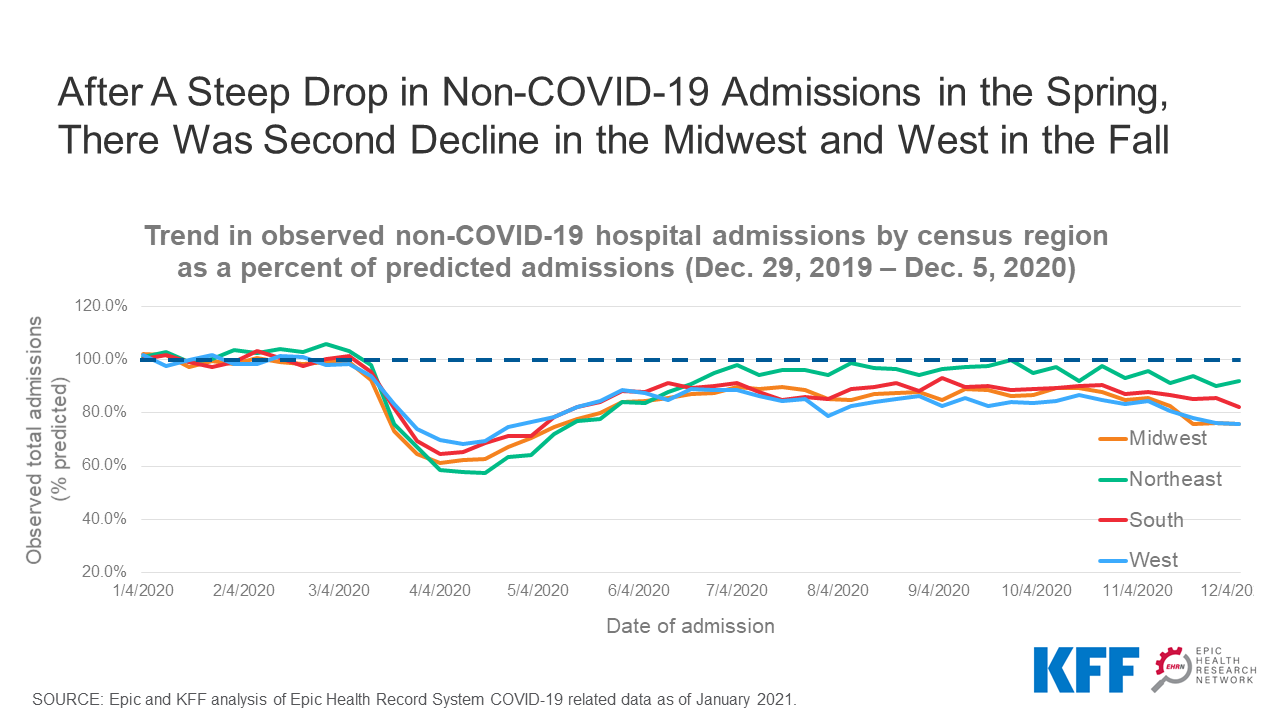Admissions to hospitals for reasons other than COVID-19 fell markedly again in November as cases of infections with the novel coronavirus began to surge anew, suggesting that more people were delaying care due to the worsening pandemic, according to an updated analysis by Epic Health Research Network (EHRN) and KFF.
The recent decline follows a big drop in overall admissions nationally last spring after the onset of the pandemic, which was followed by a rebound in admissions in the summer. The latest drop-off has been steepest in the Midwest and West, the analysis finds. In both regions, non-COVID-19 admissions were at roughly 76 percent of predicted levels at the end of November, as COVID-19 cases rose in many parts of those regions.
This new analysis updates a study from October and is based on electronic medical record data from EHRN. It includes all inpatient hospital admission volume from Dec 31, 2017 to December 5, 2020, involving patients who either were discharged or died as of January 13, 2021. Data are aggregated weekly and pooled from 34 health care organizations in the United States, representing 97 hospitals that span 26 states and cover 20 million patients.
Overall, non-COVID-19 hospital admissions sank to approximately 80 percent of predicted levels nationally by the week ending December 5, 2020, the analysis finds. Non-COVID-19 admissions reached a low of 63.4 percent of predicted admissions for the week ending April 11, 2020, but by mid-summer had rebounded to 92 percent of predicted levels.
The decrease in hospital admissions from March 8 to December 5, 2020 represented 8.5 percent of the total expected admissions for all of 2020. Total admissions were on pace to be 8.9 percent below the predicted volume for the entire year.
The federal government is giving additional financial support to hospitals and other providers to help them weather the decline in health care utilization sparked by the COVID-19 pandemic. This includes grants for hospitals from the $178 billion provider relief fund and a 20 percent increase in Medicare inpatient reimbursement for COVID-19 patients.
The decline in non-COVID-19 admissions also signals that people may be delaying care in ways that could be harmful to their long-term health. Spending on health care services declined in 2020. Other studies have documented declines in emergency department visits, and screenings for breast, cervical, and colon cancer were far below expected levels. The impact of that forgone care will be an important subject of future study.
For the full analysis, as well as other data and analyses related to the COVID-19 pandemic, visit kff.org.


